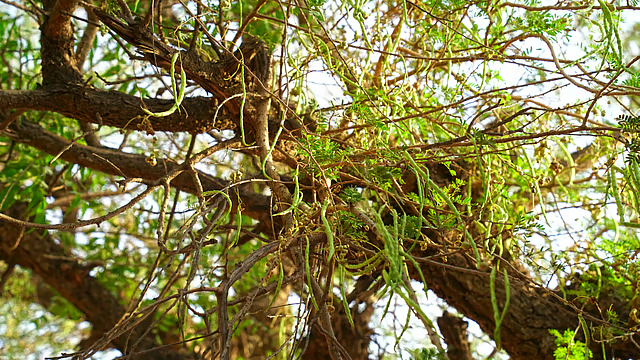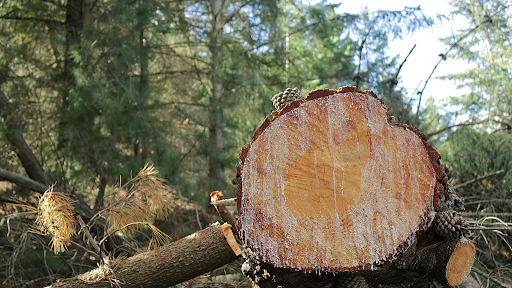Description
Disclaimer: Copyright infringement not intended.
Context:
In the arid landscapes of Rajasthan, the khejri tree (Prosopis cineraria) is a vital ecological and cultural lifeline.
What Is Ker Sangri?
- Ker: Wild, sour berries (Capparis decidua) collected in the Thar Desert.
- Sangri: Dried pods from the sacred Khejri tree (Prosopis cineraria), revered by the Bishnoi community.
- Dish: A spicy, tangy vegetable preparation, traditionally cooked with soaked Ker and Sangri along with curd, red chillies, and spices; best enjoyed with bajra roti and ghee.
Historical & Cultural Significance
- Originating as a survival food in drought-prone Thar, it evolved into a cultural delicacy.
- The Khejri tree, central to the Bishnoi faith, symbolizes ecological resilience—a community even sacrificed lives to protect it (Khejarli massacre, 1730).
- Khejri’s importance extends to Indian epics and rituals, revered as “Kalpavriksha of the Desert”
Why the GI Tag Matters
- Authenticity & Protection: Only genuine Ker Sangri from Rajasthan, made traditionally, can claim the name, preventing adulteration and fraud.
- Economic Benefits: Farmers and artisans are assured recognition, fair income, and market access—domestic and international.
- Cultural Preservation: Helps sustain traditional knowledge and promotes ecological heritage tied to Rajasthan’s arid landscapes.
GI Tag – Legal & Strategic Dimensions
- Valid for an initial 10 years, renewable perpetually.
- Administered by the Geographical Indications Registry under DPIIT, under the Ministry of Commerce and Industry.
- GI protection is India’s tool to safeguard unique regional goods under WTO-TRIPS obligations.
Comparable GI Tags from Rajasthan
Rajasthan’s GI portfolio reflects its vibrant heritage: Sojat Mehndi, Bikaneri Bhujia, Kota Doria, Blue Pottery (Jaipur), Kathputlis, and more.
ALSO READ- https://www.iasgyan.in/daily-current-affairs/ker-sangri
Source: Down to Earth
|
PRACTICE QUESTION
Q. Consider the following statements regarding the recently GI-tagged Ker Sangri:
- It is a traditional dish made from forest produce found mainly in the Western Ghats.
- The Sangri pod used in the dish comes from the Khejri tree, which is ecologically important in Rajasthan.
- GI tagging helps protect regional products under the TRIPS agreement.
Which of the statements given above is/are correct?
- 1 and 2 only
- 2 and 3 only
- 1 and 3 only
- 1, 2 and 3
Answer: B
Explanation:
Statement 1 – Incorrect
Ker Sangri is not from the Western Ghats. It is native to the Thar Desert region of Rajasthan.
Statement 2 – Correct
Sangri is the dried pod of the Khejri tree (Prosopis cineraria), a crucial species in desert ecology and revered by the Bishnoi community.
Statement 3 – Correct
GI tags are part of the WTO's TRIPS Agreement, protecting unique regional products from misuse and promoting local economies.
|











